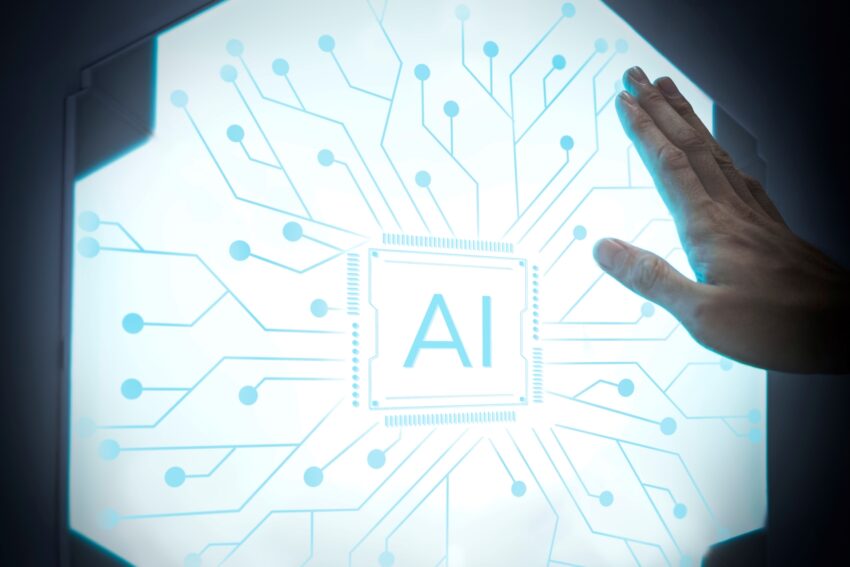Artificial Intelligence (AI) is commonly mentioned these days, rapidly transitioning from a cutting-edge luxury to an indispensable necessity. Among the various branches of AI, generative AI has emerged as a game-changer, revolutionizing how businesses operate, innovate, and compete.
However, not every company knows how to implement it properly. That’s where generative AI consulting services come in handy to provide expert guidance, strategic planning, and technical support to businesses looking to effectively harness the power of generative AI.
In this article, we’ll discuss why generative AI has become an essential tool for modern businesses and explore its impact across various sectors and functions.
Understanding Generative AI
Generative AI refers to artificial intelligence systems that can create new content, including text, images, music, and even code. These systems learn from vast amounts of data to generate original outputs that mimic human-created content.
Unlike traditional AI that follows predefined rules, generative AI can produce creative and contextually relevant results, opening up a world of possibilities for businesses.
The Shift from Luxury to Necessity
AI is no longer a nice-to-have but a must-have for gaining a competitive market. It helps increase the customer experience, boost innovation and efficiency, and optimize resources.
1. Competitive Edge and Market Differentiation
Staying ahead of the competition is crucial for every business. Generative AI provides firms with a significant competitive advantage. Businesses that leverage generative AI can:
- Develop innovative products and services faster.
- Personalize customer experiences at scale.
- Optimize operations and decision-making processes.
A fashion retailer, for instance, can use generative AI to create unique designs, predict trends, and offer personalized style recommendations to customers. This level of innovation and customization sets them apart from competitors who still rely on traditional methods.
2. Enhanced Customer Experience
Customer experience has undoubtedly become a key differentiator in many industries, with companies that prioritize it often outperforming their competitors. Satisfied customers are more likely to repeat purchases, recommend the brand to others, and remain loyal to the company, leading to increased revenue and long-term success.
Your business must implement Generative AI-powered solutions to improve shoppers’ experiences. Tools like chatbots and virtual assistants have revolutionized customer interactions, offering personalized support and faster response times.
These AI-driven tools do an excellent job of providing 24/7 customer support for clients. They also recommend products personalized for each visitor and handle complex queries with human-like understanding.
Banks are a key in point. They should implement genAI chatbots to assist customers with account inquiries, loan applications, and financial advice round the clock, significantly enhancing the customer experience and reducing the workload on human staff.
3. Innovation and Efficiency
Real-world use cases of generative AI, such as ChatGPT, have demonstrated the potential for AI to drive efficiency, streamline processes, and unlock new growth opportunities.
They allow your employees to automatically create content for marketing and communication and create prototypes and designs for product development.
Particularly, software companies are greatly leveraging generative AI for code generation, which can significantly speed up their development process, enabling them to bring new products to market faster and stay ahead of industry trends.
4. Cost Reduction and Resource Optimization
While the initial investment in generative AI may seem substantial, the long-term benefits of cost reduction and resource optimization make it necessary for businesses aiming for sustainable growth. It’s reported that AI could automate up to 30% of tasks in 60% of occupations, leading to significant money savings and improved efficiency.
Thanks to generative AI’s capabilities, businesses can automate repetitive tasks, optimize supply chain management seamlessly, reduce errors, and improve quality control.
5. Talent Attraction and Retention
As the business world becomes increasingly tech-driven, companies that embrace technologies like generative AI are more likely to attract and retain top talent. LinkedIn estimated that 91% of talent professionals say soft skills are critical to the future of recruiting and HR.
To achieve that, generative AI will come in handy to help showcase the company’s commitment to innovation. Plus, your business should provide employees cutting-edge tools to support and enhance their work. Not just stop there; people should receive good training about using and leveraging these tools so that they don’t feel that AI will replace and thread their jobs.
Conclusion
The transition of generative AI from a luxury to a necessity in modern business is driven by its ability to provide competitive advantages, enhance customer experiences, and optimize operations. As we move further into the digital age, businesses that fail to embrace generative AI risk falling behind more agile and innovative competitors.
However, remember to approach the implementation of generative AI strategically. Start by identifying areas where generative AI can provide the most value, develop a clear implementation strategy, and invest in the necessary infrastructure and talent to support AI initiatives.
The question is no longer whether businesses should adopt generative AI, but how quickly and effectively they can integrate it into their operations to stay competitive and relevant in the modern business landscape.


